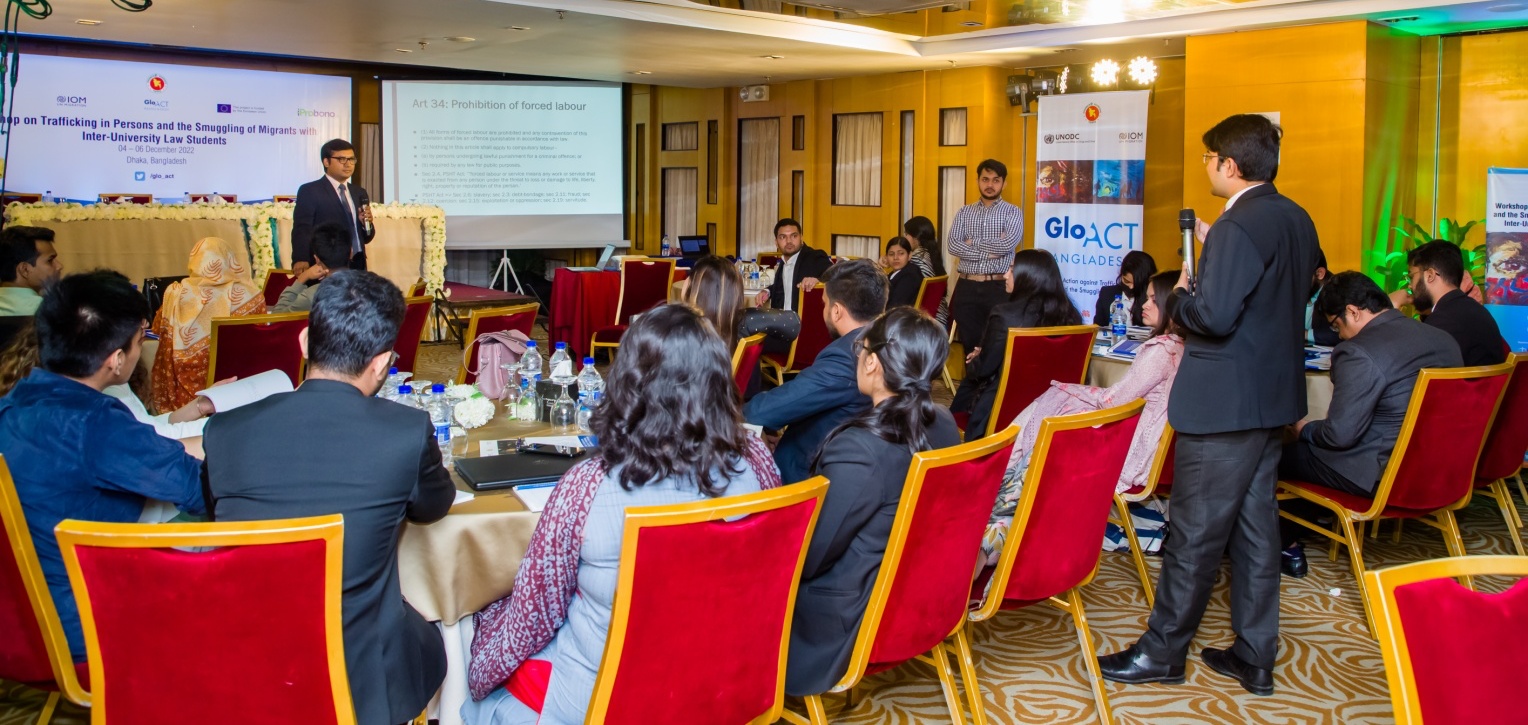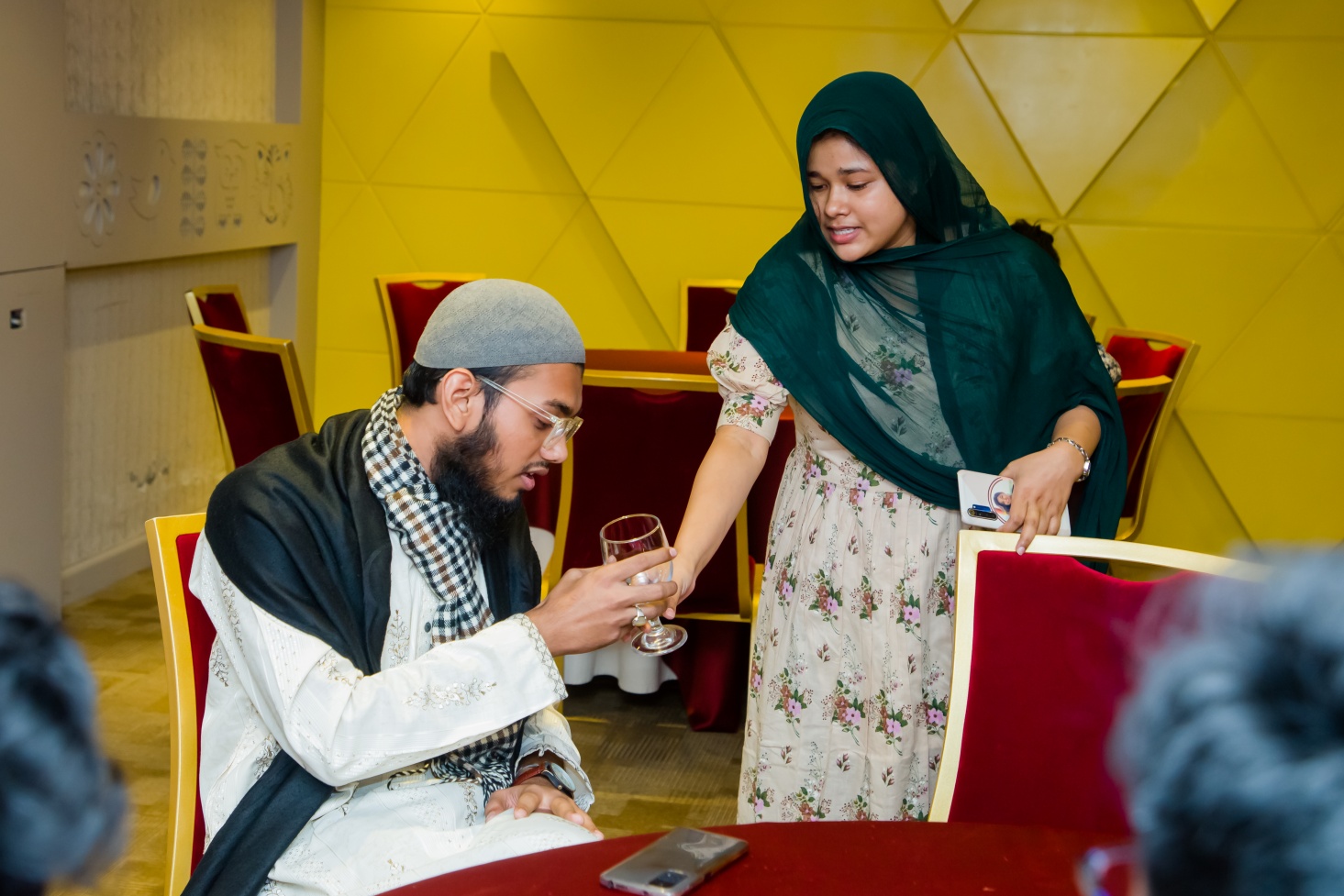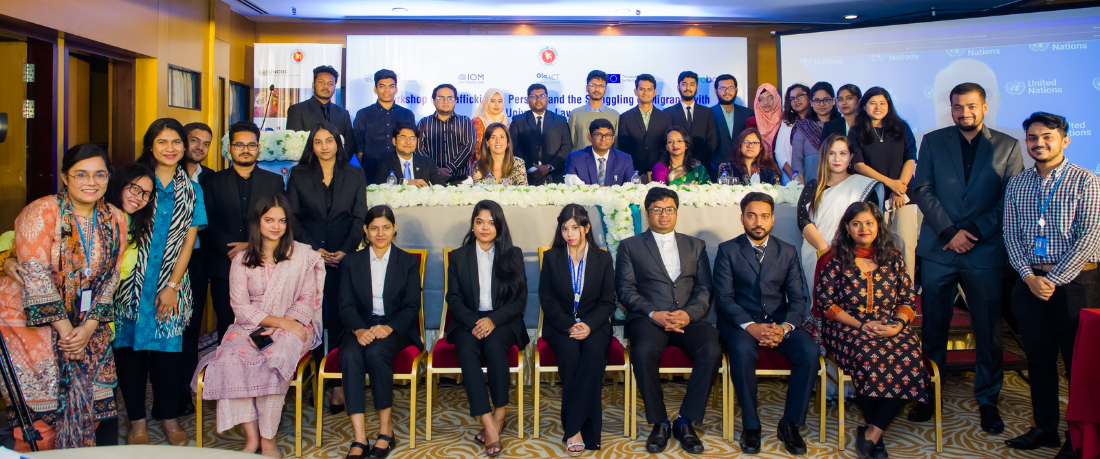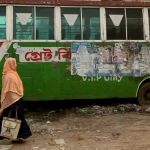Learning by Doing:
Appreciating the Challenges of Dealing with Human Trafficking cases
Arpeeta Shams Mizan
Senior Legal Officer, Bangladesh
What happens when you bring law out of the textbook? What does law look like when its theories and elements manifest through real-life incidents and real people? Can a theoretical understanding of law automatically translate into its solid application?
iProbono has been steadily conducting different clinical legal education (CLE) projects in Bangladesh since 2018 to foster safe learning spaces and opportunities for law students to engage with practical experiences and innovative pedagogy. CLE offers a learning environment where students “identify, research and apply knowledge in a setting which replicates… the world where it is practised… as it would… in the real world.”
In line with that commitment, iProbono collaborated with the Global Action against Trafficking in Persons and the Smuggling of Migrants – Bangladesh (GLO.ACT – Bangladesh) project of the United Nations Office of Drugs and Crime (UNODC) in Bangladesh to design an experiential learning workshop on laws against Trafficking in Persons (TIP). The planning of the workshop started as early as in 2020 and with careful efforts of two years, the workshop came into fruition in December 2022.
Training Via Simulation – Teaching Students How to Handle Cases of Trafficking
From 4-6 December 2022, iProbono and UNODC conducted a three-day-long workshop where 22 law students from 11 universities in Bangladesh participated as community lawyers. The workshop was divided into a theoretical and a simulation segment.
Simulation is a powerful method of pedagogy for students to experience “immersive environments that use authentic contexts, activities and, possibly, assessment; they also involve mentoring and apprenticeships in communities of practice.” Simulations require learners to act out a role by following a script. Clinical legal academics believe that simulations help students develop legal research skills. The simulation is an integral part of Harvard’s International Human Rights Clinic.
Human Trafficking is a serious criminal offence and a significant social challenge in Bangladesh. Despite having a strong commitment to combat human trafficking through national laws like the 2012 Prevention and Suppression of Human Trafficking Act, human trafficking and migrant smuggling is widespread in Bangladesh, especially in the border areas. The law students learn about human trafficking as part of their criminal law and human rights courses at law schools, but a classroom lecture cannot effectively teach students how to tackle the challenges of dealing with survivors of trafficking, of investigating a case to collect evidence for a solid prosecution, and various socioeconomic, cultural and political impediments that prevent taking the law to the survivors.
In Detail: Interactive Lectures, Simulated Interviews & Report Writing
The first day focused on theoretical understanding of Trafficking in Persons and Smuggling of Migrants with interactive lectures delivered by dynamic young academics and lawyers. Two lectures by iProbono focused on identifying elements of human trafficking through interviewing the victims and survivors of trafficking.

Participants engaging in QnA during theoretical sessions.
Days 2 and 3 were focused on simulation exercises where participants posed as community advocates and interviewed seven role players who posed as various stakeholders in the Trafficking and Smuggling networks. iProbono had designed three case studies, extracting from real life incidents in Bangladesh, and law students and lawyers roleplayed as victims and survivors, local villagers concerned about Trafficking in Persons, and agents and middlemen connected with TIP networks. The participants had to contact the role players and secure interviews with them. The overarching aim of the interviews was to collect facts that could be used for prosecution in line with the Evidence Act, 1872 and the Prevention and Suppression of Human Trafficking Act, 2012. The participants were instructed to follow the Raoul Wallenberg Institute Guidelines, known popularly as the Lund-London Guidelines, which provide directives for various missions and bodies that engage in fact-finding investigations.

Role players upholding their characters.
Each interview was supervised by expert academics and participants received extensive feedback on their performance. After the simulation sessions, participants prepared a report on their collected facts, how they would facilitate the prosecution, and how TIP laws would apply to each survivor interviewed. Through the exercise, the participants also gathered skills of empathetic listening, tackling conflicting statements, and report writing.
Why Clinical Trainings Are Important
There is a pressing need for clinical trainings for our law students to ensure greater exposure to the world outside. The Law Commission of Bangladesh observed in its Report on Legal Education that “…Law graduates in their different professional capacities …need to relate and apply their knowledge and skills for… overall socio-economic development of the country.”
It is a common perception that the design of our legal education curriculum does not inculcate necessary skills for our law students to become efficient legal professionals. This was also reflected in iProbono’s Townhall Meeting with Bangladeshi Law Students in 2021. The disgruntled voices of graduates often echo through court corridors – that the necessary training to become a competent lawyer, a legal aid officer, a caseworker, or even a judge was not duly received in law schools.
The distance between the classroom and the field seems far too wide. The simulation workshop was particularly helpful in bridging that distance, albeit with a small group of learners. With this workshop, the participants became part of iProbono’s wider student network in Bangladesh.
Our future plans include designing street law and other legal awareness raising workshops where the participants will work as real life community lawyers to spread anti-human trafficking messages to community members and common people.







